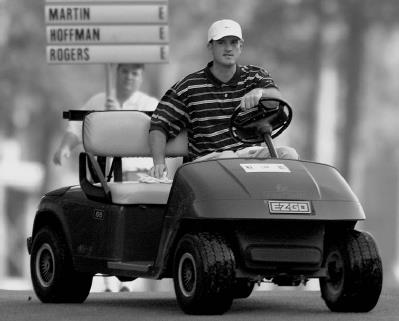The Rehnquist Court (1986–2005)Miscellaneous |
How did the Rehnquist Court deal with the Americans with Disabilities Act? |
The Rehnquist Court had a mixed record with respect to the 1990 federal law known as the Americans with Disabilities Act. In some decisions, the Court narrowed the reach of the federal law. For example, in Toyota Manufacturing v. Williams (2002), the Court ruled that in order for a worker to prove that her disability was substantially limiting, she must show that her disability affected her daily life activities as opposed to merely making it difficult for her to do her job. The decision involved an auto line worker who had carpal tunnel syndrome.
In other decisions, the Court clarified that in determining whether a worker is substantially limited, the evaluation of the worker must occur with the worker’s mitigating measures, such as high blood pressure medicine or glasses. For example, in Murphy v. United Parcel Service, Inc. (1999), the Court determined that a worker with high blood pressure was not disabled within the meaning of the ADA because his medicine controlled his blood pressure problem.
In U.S. Airways, Inc. v. Barnett (2002), the Court determined that an employee’s request for a reasonable accommodation under the ADA (a more favorable work schedule, more break time, less physically demanding job) must often give way to a fairly applied seniority system. In the case, a worker with a disability requested the employer accommodate him by giving him a less physically demanding job. However, a more senior employee later sought the same job and under traditional rules, the more senior employees get such jobs. The employee with a disability sought to trump the employer’s seniority system.
In other situations, the Court has upheld disability discrimination claims filed under the ADA. In PGA Tour, Inc. v. Martin (2001), the Court ruled that the PGA Tour must give disabled golfer Casey Martin a golf cart when he participates in PGA tournaments. Martin suffers from a condition in his left leg in which the blood vessels do not function properly. The Court wrote that the PGA Tour’s “refusal to consider Martin’s personal circumstances in deciding whether to accommodate his disability runs counter to the clear language and purpose of the ADA.” The Court added that “allowing Martin to use a golf cart would not fundamentally alter the nature” of the PGA’s tournaments.
In Pennsylvania Boot Camp v. Yeskey (1998), the U.S. Supreme Court ruled that Title II of the ADA applied to state inmates. The case concerned a prison inmate who was denied admission to a prison boot camp (and thus eligibility for early release) because of his history of hypertension. Justice Antonin Scalia wrote for the Court that “the statute’s language unmistakably includes State prisons and prisoners within its coverage.”
In Tennessee v. Lane (2004), the Court refused to dismiss the disability discrimination suit of a paraplegic who was forced to crawl up several floors of courthouse steps to appear at a criminal court hearing. The Court determined that Congress did not exceed its constitutional authority to eliminate states’ immunity from suits (under the Eleventh Amendment) under Title II of the ADA. This decision meant that states have an affirmative obligation to ensure that disabled persons have access to the courts.

